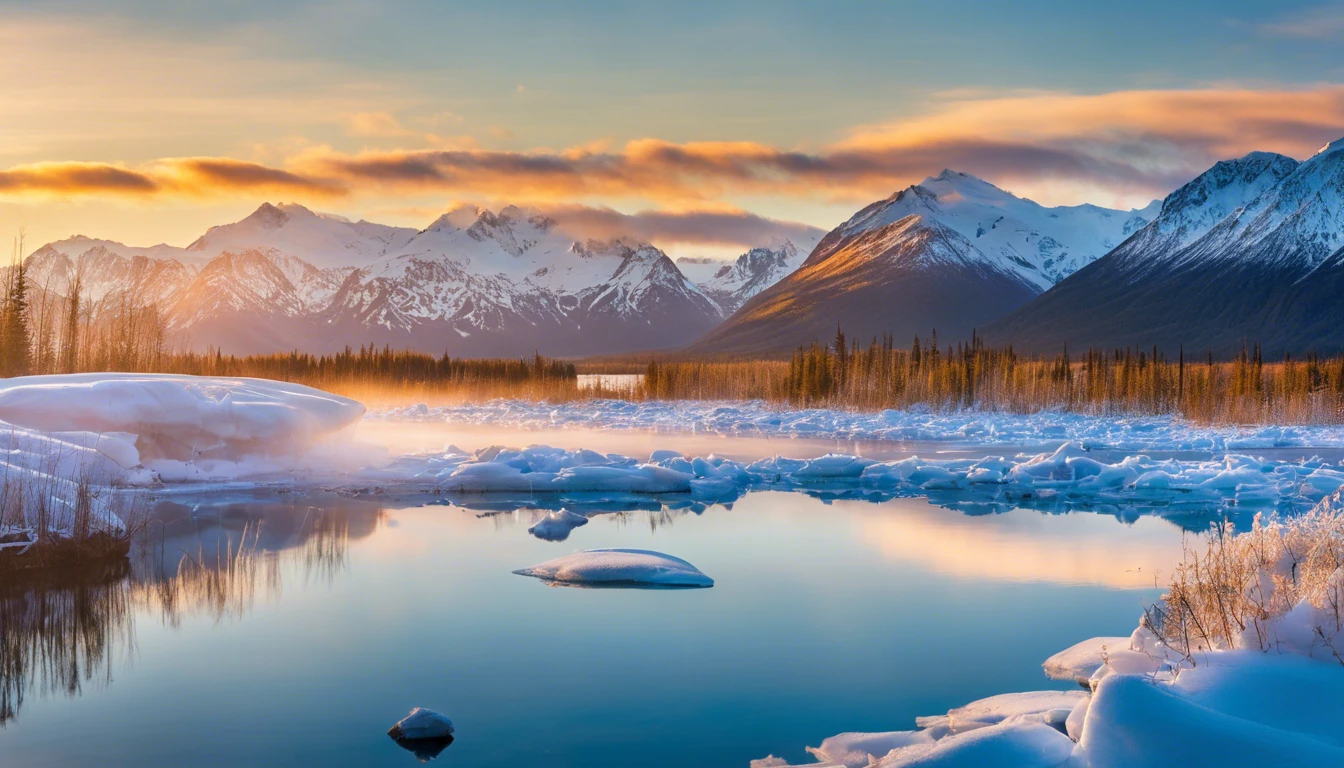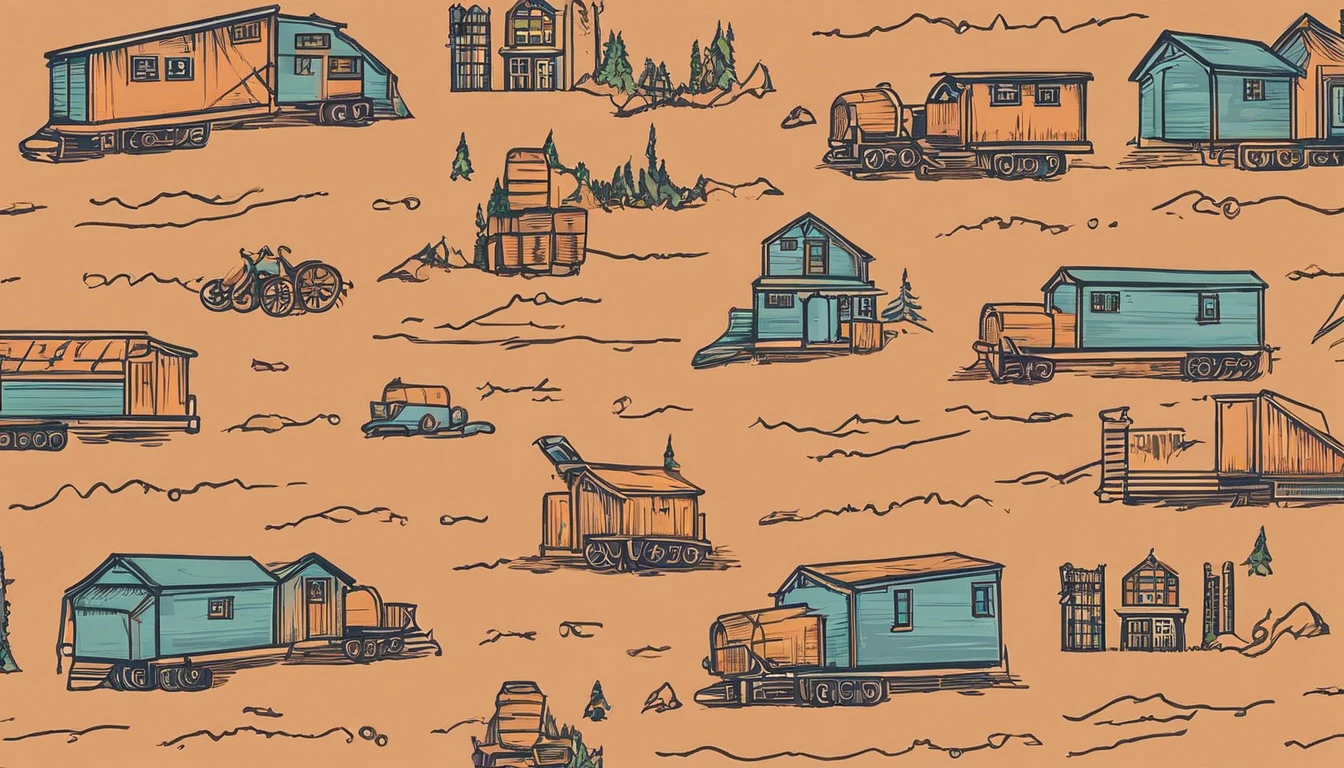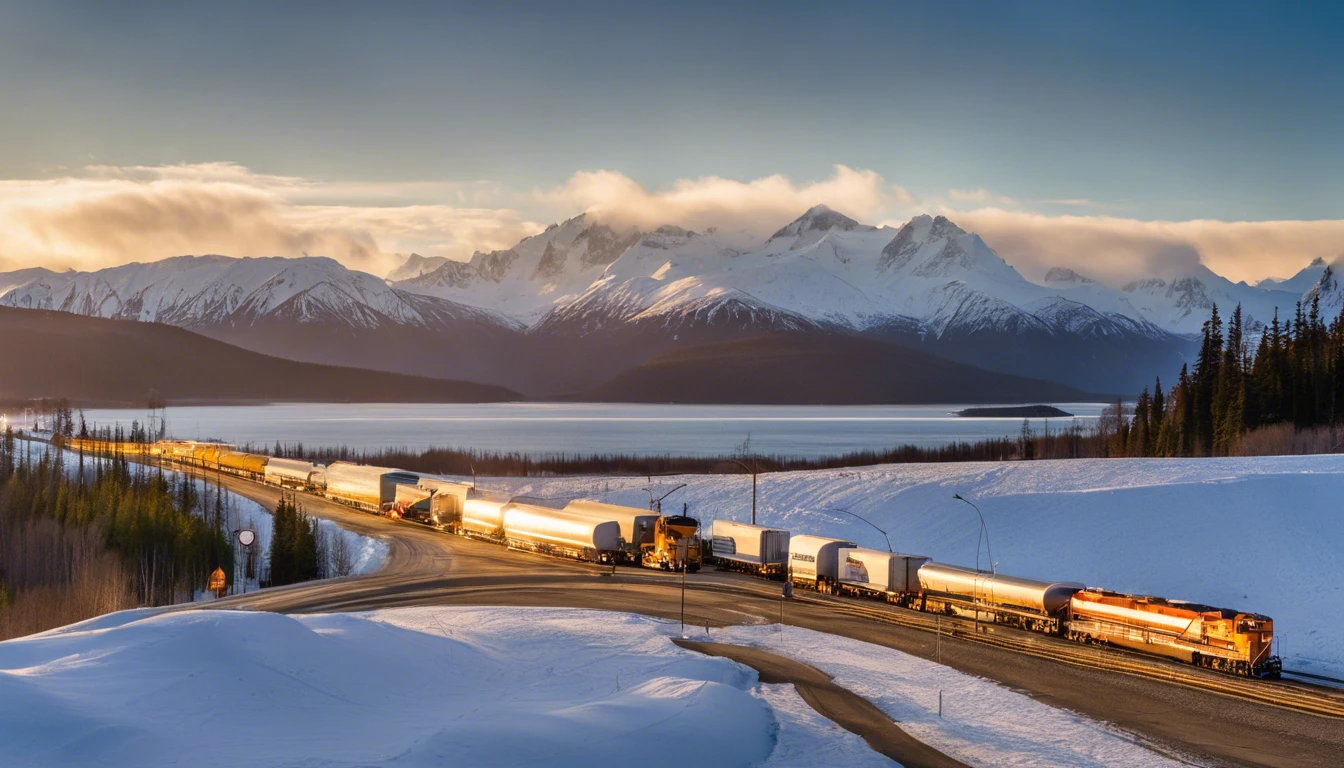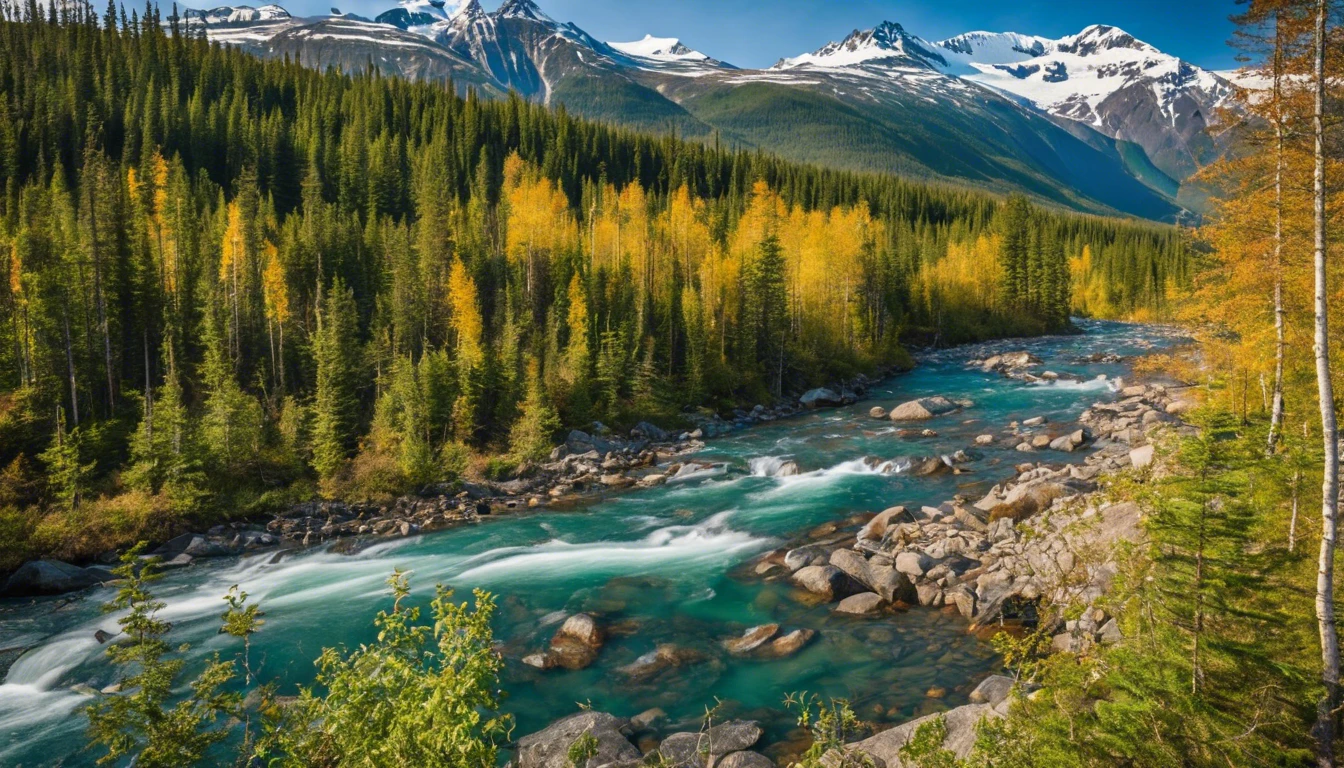Alaska LLC Domestication
Alaska LLC Domestication is a process that allows your existing LLC to move from your current state to Alaska, an ideal option if you're considering hiring a moving company or even personally moving to Alaska. By utilizing this method, you can keep the same entity, assets, liabilities, taxpayer identity, and EIN. This is a great way to transition your business to Alaska without having to start from scratch or deal with the hassle of a traditional moving company.
Here are some key points you need to know about Alaska LLC Domestication:
-
Legality: Your LLC must be legal in both your original state and Alaska. This means you must be in good standing with the state you're moving from and meet all the legal requirements to operate in Alaska. If an LLC is opened in one state and the owner moves to another state, such as moving to Alaska, several options exist for managing the business. The LLC can continue operations in the new state by foreign qualifying. It's important to note that utilizing a moving company to transfer your physical assets does not establish a business’s domicile; factors such as employee and bank account locations are considered.
-
Alaska Law: Once your LLC has been domesticated in Alaska, it will operate under Alaska law. The process of domestication involves verifying the business type is lawful in Alaska, preparing, and filing necessary documents such as a Plan of Domestication and Articles of Organization, which incurs a fee of $275.00 or $175.00 depending on whether the LLC receives a new Alaska entity number. At the completion of domestication, the LLC retains its identity, assets, liabilities, and contractual obligations. This could be a beneficial move if you're considering moving to Alaska or hiring a moving company to assist with the transition.
-
Reduced Reporting and Fee Requirements: One of the benefits of Alaska LLC Domestication is potentially less paperwork and lower fees. Alaska's reporting requirements may be less stringent than those in your original state, and the fees for filing annual reports and other necessary documents may also be lower. To officially register the LLC in Alaska, submit the necessary documentation via an online portal or mail with a $250 fee. Biennial reports are required for compliance, costing $100, due on January 2 every other year based on the LLC's formation year.
-
Tax Benefits: Alaska does not levy an individual income tax or a state sales tax. This can significantly reduce your tax burden and make it more cost-effective to operate your business. Managing taxes for businesses operating across multiple states can be complex, requiring professional accounting assistance to navigate both states' tax laws effectively. This is yet another reason people often consider moving to Alaska.
-
Pro-Business Legal Atmosphere: Alaska is known for its business-friendly laws and regulations. The state encourages entrepreneurship and business growth, making it an attractive destination for small businesses and individuals thinking about moving to Alaska. The legal and regulatory environment in different states can significantly impact business operations, particularly in sectors like real estate.
Remember, Alaska allows domestication for any lawful purpose, so whether you're moving your business for tax benefits, lower costs, or simply a change of scenery, Alaska LLC Domestication can make the transition smoother and easier, with or without the help of a moving company.

Alaska's Geography and Climate
Alaska, the largest state in the U.S., is a state of extremes, particularly in terms of its geography and climate. With a total area of 665,384 square miles, it's over twice the size of Texas! However, the climate can vary significantly between the northern and southern regions.
In the north, winters are long and cold, with temperatures averaging between -10°F (-23°C) and -30°F (-34°C), while summers are short and cool, with temperatures averaging between 60°F (16°C) and 40°F (4°C). This part of Alaska is influenced by the Arctic Ocean. On the other hand, the southern regions, influenced by the Pacific Ocean, experience milder winters and cool, rainy summers, with winter temperatures averaging around 40°F (4°C) to 20°F (-7°C) and summer temperatures averaging around 60°F (16°C) to 50°F (10°C) source.
The climate of Alaska is also influenced by factors such as latitude, continentality, and elevation. The high latitude, for example, affects seasonal solar radiation patterns, leading to less warmth in the winter and more light in the summer. Additionally, the state's major mountain ranges have a significant impact on moisture distribution source.
Alaska's diverse geography includes regions such as rainforests receiving about 120 inches of rainfall annually. These areas seldom see temperatures drop below 20 degrees in winter or rise above 75 degrees in summer. Conversely, the interior region can see summer temperatures climb up to 90 degrees Fahrenheit and winter temperatures plummet to -60 degrees Fahrenheit.
Alaska is home to over 3 million lakes, more than any other state. Plus, over half of the world's glaciers, approximately 100,000, dot the landscape of Alaska source. The state also has the highest peak in North America, Denali, which stands at an impressive 20,310 feet above sea level source.
The northernmost point in the U.S., Point Barrow, is located in Alaska. This remote location is the perfect spot to witness the breathtaking Northern Lights source. With 6,640 miles of coastline, Alaska has more coastline than the rest of the U.S. combined source.
The state is also home to the Tongass National Forest and the Chugach, two of the largest national forests in the U.S. The Tongass National Forest, located in the Southeast, spans a whopping 16.8 million acres, while the Chugach in Southcentral Alaska covers 4.8 million acres. These forests are lush, beautiful, and filled with wildlife, offering numerous opportunities for exploration and adventure.
Moving your small business to Alaska involves understanding the state's geography and climate. This understanding will allow you to choose the best location for your business. For instance, if you're looking for a family-friendly neighborhood in Alaska, consider Kenai. Known for its strong community spirit, excellent schools, and outdoor recreational activities, Kenai is an ideal place to live and work source.
Living in Alaska also offers opportunities for a unique lifestyle, including off-the-grid living and strong community bonds in smaller towns. There are potential job opportunities in sectors like fishing, tourism, and oil source. However, you should be prepared for challenges such as extreme cold and limited daylight in winter, isolation, high living costs, unpredictable weather, and limited healthcare facilities in remote areas. Despite these challenges, many find the Alaskan lifestyle deeply rewarding, boasting a slower pace of life, a culture that values individual freedom, and a less materialistic viewpoint compared to other regions.
Over the past 60 years, Alaska has warmed more than twice as rapidly as the rest of the U.S., with the average annual air temperature increasing by 3 °F and the average winter temperature by 6 °F. This has had implications for the state's permafrost and ice conditions, wildlife habitats, and navigation routes, making it critical to keep up with the latest climate information when planning your move source.

Alaska's Economy
Alaska's economy, although ranking 49th among states and Washington, DC, has shown some promising signs of growth. As of November 2023, the unemployment rate was 4.4%, and the real GDP growth rate was 3.6% per year in the 3rd quarter of 2023. The real GDP was valued at $65.4 billion in goods and services per year, indicating a stable economic environment for small businesses to thrive in source.
In 2022, Alaska's economy had a Gross State Product (GSP) of $49.6 billion. Though it experienced a decline rate of -1.7% over five years, the state still maintains significant sectors that contribute to its economy. These include Mining, Transportation and Warehousing, and Real Estate and Rental and Leasing source.
The oil industry continues to be a significant player in Alaska's economy, contributing around 85% of the state's revenue source. If your small business is related to this sector in any way, you might find some great opportunities here.
Tourism also plays a vital role in Alaska's economy, with more than two million visitors flocking here every year source. The sector contributes nearly 2 billion dollars annually, making it a lucrative industry for businesses catering to tourists source.
The fishing industry, too, is a major economic sector in Alaska, with nearly six billion pounds of seafood caught each year source. This includes not just commercial fishing, but also sports fishing, attracting enthusiasts from around the world.
Despite the challenges, Alaska's economy remains resilient, with sectors like information witnessing the highest growth rate at 33.4% annually source. It's worth considering these economic sectors when thinking about moving your small business to Alaska.
Alaska is also known for its sense of community, stunning natural beauty, and ample recreational activities. Some areas, such as Anchorage, even offer financial incentives to new residents, like the Anchorage Remote Worker Incentive Program that provides up to $1,000 in reimbursements source.
However, it's important to consider the unique environmental and societal characteristics of specific areas like King Salmon or Barrow (Utqiagvik) before making a decision. For instance, King Salmon has a subarctic climate with cold winters, cool summers, and significant snowfall source. On the other hand, in Barrow (Utqiagvik), cultural participation and embracing local clothing and practices are advised source.
In conclusion, moving your small business to Alaska could offer some exciting opportunities. The state's economy, while facing some challenges, has shown growth in certain sectors, making it a potential place for businesses to thrive.

Cost of Living in Alaska
When you think about moving your small business to Alaska, one of the main factors to consider is the cost of living. It's important to note that the cost of living in Alaska is about 26.07% higher than the U.S. average. This is largely due to the high costs of utilities and shipping.
Since Alaska is quite remote, it costs more to get goods and services there. That's why you'll find that things like groceries, clothing, and other consumer goods often come with a higher price tag. The same goes for utilities like heating, which you'll use a lot, given Alaska's cold climate.
In addition to these ongoing expenses, it's crucial to consider the initial costs of moving to Alaska. These costs can vary based on factors such as the origin of the move, the volume of belongings, and the mode of transport for those belongings. Initial costs include first and last month's rent, plus a deposit totalling approximately $4,500, alongside utility deposits around $400. Shipping a vehicle may cost between $2,000 to $3,000. And moving household goods can cost around $10,000 for those with considerable belongings. Additional expenses may arise for winter-appropriate clothing and car winterization, including a plug-in heater and snow tires or studs.
The cost of moving to Alaska can vary significantly depending on the distance from your starting point. For instance, moves from closer locations like Seattle tend to be cheaper than from distant places like Tampa. If you're considering driving, bear in mind that the distance from Seattle to Anchorage is about 2,260 miles. With a 15' truck averaging 10mpg, the minimum gas cost would be over $852, not including higher gas prices in Canada and Alaska. Additionally, the cost of renting a truck can range from $3,192 to $6,721, varying by truck size and distance. Staying overnight during your journey may cost on average $140 per night for a quadruple room, totaling around $490 for a seven-day trip. Therefore, the total moving costs, including gas, hotel stays, and truck rental, can range from $5,192 to $8,692, excluding food and potential vehicle issues. This estimation doesn't consider alternative, often more expensive moving methods. SoFi
Now, let's talk specifics. Take Homer, AK for instance, which offers several neighborhoods ideal for businesses and families alike. The cost of living index in the Diamond Ridge neighborhood, known locally as Ch’aqiniggech’, stands at 107.7, with a median household income of $87,464 and a per capita income of $40,064 🔗. Meanwhile, Halibut Cove, accessible only by boat or floatplane, has a cost of living index of 113.0. The median household income here is $73,000🔗.
Anchor Point, known for its strong community and breathtaking views, has a median household income of $54,024🔗. Fritz Creek, blending wilderness and community spirit, boasts a median household income of $68,828🔗. Lastly, Seldovia, a charming town, has a median household income of $76,355🔗.
But it's not all bad news. One of the benefits of living in Alaska is that there's no state income tax. That's right, you won't have to pay state taxes on the income you make from your business. This can be a significant saving, especially if your business is profitable.
Moreover, Alaska residents can receive annual checks from the state's Permanent Fund Dividend Division. This is a fund set up by the state of Alaska to share the profits from oil revenues with its residents. As of 2017, the fund stood at $62.3 billion. While the amount varies each year, the checks have averaged around $1,100. This can help offset some of the higher costs of living in Alaska.
So, in summary, while the cost of living in Alaska is higher, there are also benefits that can help balance things out:
- No state income tax
- Annual checks from the Permanent Fund Dividend Division
- A unique and beautiful living environment
Moving your small business to Alaska is a big decision, so it's crucial to weigh all these factors before making your move. For those looking for advice and shared experiences related to living in and moving to Alaska, The Alaska Frontier, a major Alaska-themed media group with over 240,000 members, can be a useful resource. The Alaska Frontier
🔗: Source

Transportation and Recreation in Alaska
When moving your small business to Alaska, you'll soon realize that the state's transportation system is a bit different than what you might be used to. Alaska's highway system is relatively limited due to its vast and rugged terrain. Because of this, many areas rely heavily on air and water transport. You might find that you'll be using small planes or boats to get around or make deliveries more often than you'd expect.
In addition to the unique transportation system, Alaska offers an abundance of recreational opportunities. If you're an outdoor enthusiast, you'll be thrilled to know that Alaska is a paradise for activities like:
- Fishing: Alaska is known for its rich waters teeming with salmon, halibut, and many other species of fish.
- Hunting: The state is home to a variety of wildlife, making it a prime location for hunting enthusiasts.
- Camping: With numerous state and national parks, camping is a popular activity in Alaska.
- Winter sports: Alaska's long winters provide excellent conditions for winter sports such as skiing, snowboarding, and snowmobiling.
In fact, in 2022, Alaska's outdoor recreation sector generated $2.6 billion in economic output, supported over 20,000 jobs, and accounted for 4% of the state's economy, notably outpacing both state and national economic growth rates [ADN]. This sector includes activities like recreational boating, fishing, RVing, hiking, camping, hunting, ATVing, biking, recreational flying, snowmachining, and other winter sports.
But remember, while these outdoor activities can be fun, the Alaskan wilderness can also be challenging and unpredictable. It's essential to be prepared and respect the environment.
When considering where to relocate your business within Alaska, take a look at some of the thriving communities in the state. For instance, Gateway and Wasilla have seen impressive growth since 2000, with a soaring median household income reaching $109,991 in 2021. The cost of living index is close to the U.S. average, making it an affordable Alaskan option. The area is also noted for its high-quality education system and diverse community [Citymoving].
Palmer, renowned for its small-town charm and scenic beauty, offers a serene living environment amidst mountain vistas. The quality of life, connection to nature, and community-oriented lifestyle are key attractions. The town has experienced growth, with a vibrant mix of young families and professionals [Citymoving].
Another important factor to consider is that tourism is a major economic force in Alaska. In 2019, more than 52,000 Alaskans were employed in the tourism sector. This sector not only provides jobs but also generates substantial returns for Alaska and its communities [AlaskaTIA].
In conclusion, transportation and recreation in Alaska might be a bit different from what you're used to, but it's part of what makes living and doing business in Alaska such a unique and exciting experience. Don't let these differences intimidate you - instead, embrace them and make the most out of your Alaskan adventure.






